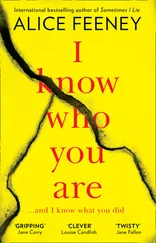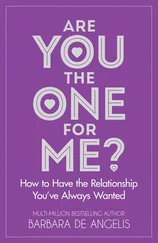Much later I learned that because Richard could no longer get good jobs in London or New York, he had allowed a headhunter to lure him to Moscow under the premise that a stint on the “marketing frontier” would be a boon to his CV. Moscow was a plum assignment for journalists and diplomats, but for advertising creatives it signaled a career in decline. They weren’t going to win awards at Cannes for Russian campaigns. When expats like Richard returned to their native countries, they hoped to find juicy offers waiting for them. In fact, their time in Moscow usually dulled their prospects. The bureaucratic red tape and mafia kickbacks exhausted them, and they eventually resigned themselves to getting drunk. Almost every expat I met had a serious drinking problem. And Richard didn’t speak a word of Russian. He’d been there for over a year and hadn’t made an effort to learn the language.
Richard seemed grateful for an audience. I was young and, he must have thought, impressionable, and because I nodded and smiled as he pontificated about advertising, he proposed that I “brainstorm” ideas for the campaign.
“What campaign?” I said.
“Czar,” he said. “You’re American. You know about soft drinks. Maybe you can help Svetlana here come up with something.”
“I don’t know anything about advertising,” I said.
“That’s where you’re wrong,” he said. “Americans know everything about selling. It’s in your DNA. I’m sure you can teach Svetlana quite a bit.”
I couldn’t tell if Sveta was annoyed that I was being encouraged to take her job away from her. When Richard wandered off, I turned to her. “I don’t want to be a copywriter,” I said. “I want to be a journalist.”
“What is difference?” she said.
“In my country there’s a big difference,” I said. Even as I said it, I wasn’t sure I could defend that position. Svetlana inspired knee-jerk reactions in me. With her I was an absolutist.
The Russian in the Ralph Lauren shirt ambled over to Svetlana’s desk and asked her for a cigarette. She tossed him one, and he lit it, expelling the smoke from a sly corner of his mouth. “Amerikanka?” he said to me.
“Da,” I said.
He asked me where I was from. I told him. He started to laugh. “I lived in Washington,” he said in Russian.
“Tochno?” I said. Really? Then I wondered if I had misunderstood him. I looked to Svetlana for help.
“Andrei’s father was the diplomat,” she said. “In Vashingtone in 1980s.”
The Russian embassy was a short walk from my house. Construction had started on Mount Alto—a controversial location, since it was one of the highest points in the city, an ideal place for surveillance—in the eighties, and even before the new embassy opened years later, its employees and their families were housed in apartments on site. In high school I used to see Russian men stumbling out of The Good Guys, the strip club a few blocks away on Wisconsin Avenue.
“How long did he live in Washington?” I said to Sveta.
Andrei answered me. His English was so devoid of accent that he sounded American. And I realized that he could have passed as American for another reason: he was so clean. He looked like a man who showered every day. Russians thought our American obsession with cleanliness was neurotic. “Four years,” he said. “From 1985 to 1989. I was there when we discovered your tunnel.”
The United States had built a tunnel under the Russian embassy in an attempt to plant listening devices, but the operation was exposed before any intelligence could be gleaned from it. Supposedly Robert Hanssen told the Soviets about it years before he was arrested for espionage.
“Not my tunnel,” I said.
“Not your tunnel,” he said. His eyes were teasing and blue. I couldn’t tell if he was flirtatious or cruel. “Spasibo za sigaretu,” he said, and returned to his desk.
“Andrei is the account executive,” said Svetlana.
She stubbed out her cigarette in the glass ashtray on the corner of her desk. It was from the Hotel Kempinski. When she saw me eyeing its logo, she said softly, “I took it from the room after I slept with a German. He was the guest there.” I must have looked shocked. “What? You don’t have the sex? Americans are such prude,” she said.
I was getting tired of hearing generalizations about Americans. I wanted to explain that it was her unapologetically transactional attitude to sex that surprised me, but I changed the subject instead. “I thought you were taking me somewhere today,” I said. I was getting impatient. Svetlana had lured me all the way to Moscow, and for what? To show me the promise of Russian consumer goods? “I thought you knew something about Jennifer.”
“Da,” she said. “Our excursion. Come with me.”
I FOLLOWED SVETLANA DOWN THE STREET, where she paused for an endearingly wistful look into the window of a clothing boutique—“The Italians make such beautiful things,” she said—past the grand façades of the Bolshoi Theater and the Hotel Metropol, and then we took a left. Sveta moved like a whisper: it was as if her feet didn’t touch the ground at all, as if she were floating on her opera cape. She wasn’t fast—I had to slow my natural gait to keep my pace with her—but she had a dancer’s control and grace. We were heading toward Lubyanka Square, the home of what was once the KGB.
“Now there is museum at KGB,” she said. She pronounced it the Russian way, Ka-Guh-Beh, the initials cloaked and thuggish.
When we entered Lubyanskaya Ploschad, though, the KGB building was far less imposing than I had imagined. Its Baroque exterior and mustard yellow walls suggested nothing more malevolent than impenetrable bureaucracy. After the coup, she told me, people descended like vultures and tore down the statue of Felix Dzerzhinsky that had loomed for so long in the center of the square. Dzerzhinsky founded the secret police (originally called the Cheka), and his statue had become a symbol of the culture of surveillance. The museum, she said, was not in the KGB headquarters but across the street, in the building that housed a grocery store called Seventh Continent. “Is very expensive market,” she said. “Only foreigners shop there.”
The museum wasn’t marked; in fact, its glass entrance doors were hidden by heavy curtains, and when we stepped inside, I wasn’t sure we were in a museum at all. It was a low-ceilinged space, with a few dusty display cases recessed against the walls. “Director of museum was colonel in KGB,” Svetlana said, and on cue a man emerged from the shadows. He must have been in his fifties, and his hands were deep in the pockets of a limp, ill-fitting sport coat.
“Zdravstvuite,” said Sveta. Hello. And then to me, “He will give us tour. I will be translator.” She handed a stack of bills to the man. Rubles reminded me of Monopoly money; they were made of cheap paper in pastel colors.
“U vas dollary?” he said, looking at me.
Everyone wanted American dollars. I turned to Sveta for direction, and she nodded. So I fished a ten from my backpack. He snapped it out of my hand like a shark.
The room was chilly and poorly lit. The man—his name was Anton, he told us—produced a pen from a pocket and with a sleight of hand the pen became a flashlight. He moved with reverence through the museum. It had been created in 1984, under Andropov, to house spy memorabilia but had opened to the general public only recently, and only by appointment. Anton promised to reveal secrets of the Cold War, but there was nothing revealing about his body language, and I was sure there were many secrets still being guarded across the square. The KGB had disbanded, but spies were still hard at work. The KGB’s successor, the FSB, had more operatives working in Washington than ever before. Anton pointed his penlight at the display cases.
Читать дальше












